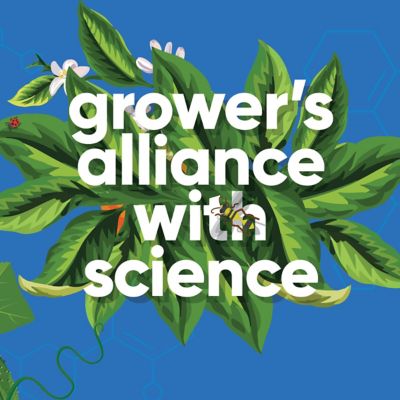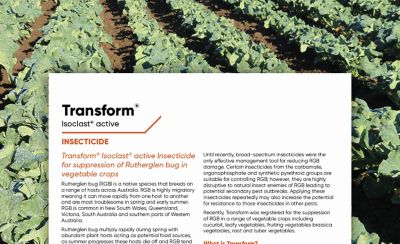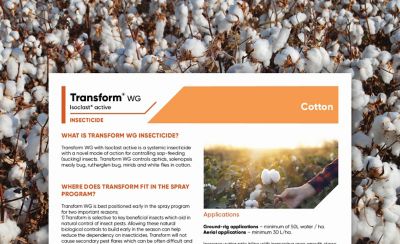Mangoes on the property were harvested in November 2021 and had a pack-out of high 80 per cent and into 90 per cent.
Northern Territory conditions are very challenging when striving for mangoes of top quality with insects and heat of great concern.
“Fruit spotting bug is a major issue,” Mr Ormsby said. “They fly in, do the damage and are gone. Then two weeks later the babies are there.”
Transform® insecticide, from Corteva Agriscience, is registered for the control of Fruit Spotting Bug under a permit held by Horticulture Innovation Australia.
Last season Mr Ormsby used it just after flowering and was pleased with the results.
“We looked for eggs on the leaves and used Transform® to clean them up,” he said. “It did a really good job.”
“Transform® is strong on the pests and soft on the beneficials. My farm used to be run on the older chemistries. The problem with going old school is the more spraying you do, the harder they come back. You are wiping everything out.”
“Now we have so many better products which allow us to keep the beneficial insects in the mangoes. We are probably about 70 per cent organic now and using these softer chemistries when we need to. I’m not necessarily a greenie but I know this approach is working. We are getting far better-quality fruit.”
Mr Ormsby said native bees, European bees, flies and ants all help with pollination and so it was important to look after them.
Spraying is conducted at night from June and July, though to harvest in November, with each application a mix of foliar fertilisers, amino acids, and fungicides and insecticides when needed.
Fruit picking is also conducted at night to ensure the mangoes are harvested at their optimum quality.
“It can be 37 degrees at 10 o’ clock in the morning and 42 degrees at 3pm,” Mr Ormsby said. “During the nighttime it is cooler, and the fruit is a lot less stressed.”
The hedging business has been operating for 15 years, with the pruning conducted immediately after the mangoes are harvested.
“Hedging really depends on the age and configuration of the orchard but a typical tree might be three to four metres in height with a canopy of three metres each side,” Mr Ormsby said.
“This helps to get more product into the mango tree and produce a consistent crop of fruit.”



